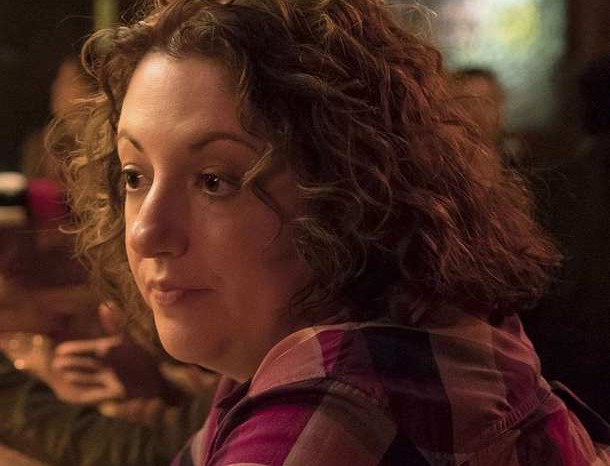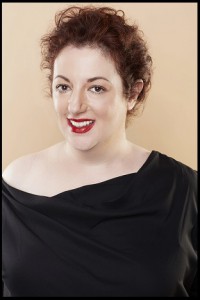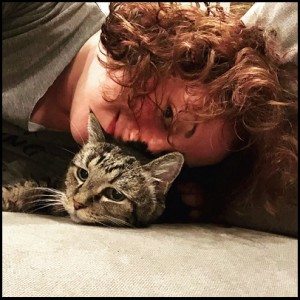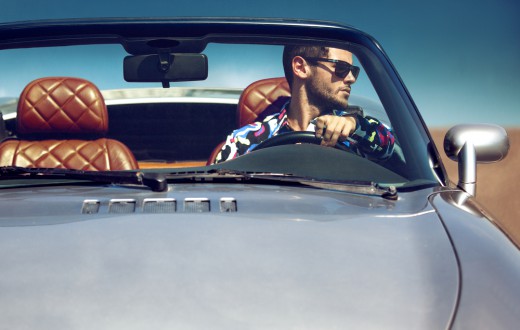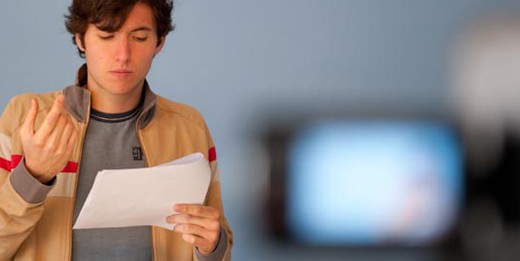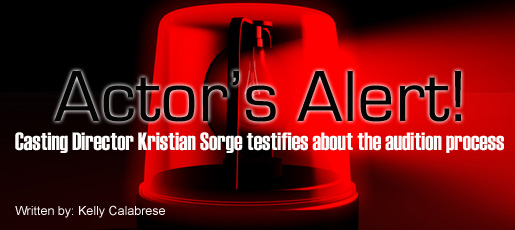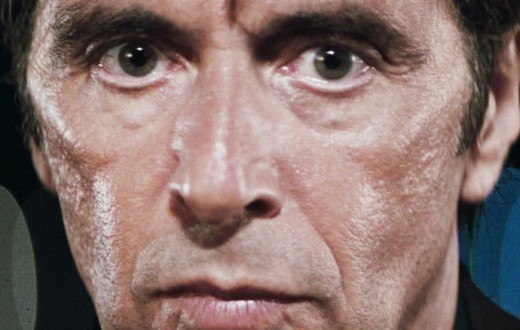Actor Rebecca Metz took a controversial role which, unbeknownst to her at the time, was the key to catapulting her career to the next level.
The risk Rebecca accepted in an episode of FX’s Nip/Tuck, where she played against the stereotypical self-destructive playboy “Christian Troy”, worked in her favor. The same thing happened with Sharon Stone when she accepted the role of “Catherine Tramell” in the film Basic Instinct.
What we didn’t know about hot-button characters, until now (keep reading below!) is what the production team goes through to balance those types of characters with regard to how the viewers will feel.
Currently, Rebecca Metz is on two shows, so let’s read on to find out what makes Rebecca a successful working actor.
Rebecca Metz. Photo Credit: Ron Derhacopian.
You have a major recurring role on the critically acclaimed FX series BETTER THINGS and are a series regular on the uber-popular Disney Channel series COOP & CAMI ASK THE WORLD. Did you audition? If yes, tell us about your auditions for these shows.
I did audition for both roles.
Coop and Cami was a really simple, straightforward process. My agent emailed asking if I was interested in reading for the role while casting was in pre-reads. Kids’ multi-cam wasn’t really the trajectory I was on and I’d been bumping up against the series regular glass ceiling for years, so I figured this would be one more to chalk up to experience. I went in at the callback stage and quickly got invited to test. The actress I was testing with was a totally different type and looked so much more like the wholesome, midwestern image I (probably unfairly) had in my head of a Disney Channel mom than I do. I figured it was in everyone’s best interest for me to just do it the way it made sense to me, which was much wrier and messier than I assumed they were looking for — because that way they’d see what I bring to the table and I wouldn’t get stuck trying to pretend to be something I’m not — and a couple of days later I got the call that I booked it. It was probably no more than a week start to finish. It’s so interesting… You spend years trying to reach this professional milestone and feeling like you’re cursed and it’s never going to happen, and then the right project shows up and it feels as easy as walking through an open door.
For Better Things, casting director (and now producer) Felicia Fasano called me in. I’d known her for years, I booked Californication through her, and the show had been on my radar since FX announced it. That audition was unusual in that there were no sides to prep ahead of time. The instructions were to show up 15 minutes early to look at the material. And it wasn’t a room full of women who looked like me, there were all colors, shapes, and sizes there, all reading the same material, which I liked. It was just about Pam getting a feel for everyone. I read a few different characters with Felicia and that was it… I don’t remember a callback. A week or so later, my agent called and said, “They don’t know who you’re going to play but you’re in the show.” After another couple of weeks, I booked one episode playing Tressa, Sam’s manager— the episode where Sam’s up for a pilot that I know is too good to be true.
The Sunday after I shot it, Felicia texted me and asked if I was free the following day. I said yes (which probably wasn’t true but when casting asks if you’re free you say yes) and got written into a scene in the kitchen with Pam, Diedrich Bader, and Celia Imrie. After that, Tressa was part of Sam’s inner circle.
Both of the above shows are on cable television. You’ve also been on network television, in shows such as Grey’s Anatomy. What differences are there regarding working on a cable show vs. network show?
I don’t really feel a difference on set between network and cable. A lot of cable channels — including FX and Disney Channel — are owned and run by big studios, so you’re working for and with the same people no matter where the show airs.
There are, however, big differences between being on a newer show versus one that has been around for a while and found its groove, like Grey’s or Shameless. Guesting on a show like that, you’re sort of jumping onto a moving train — your job is to figure out how to fit into how they work, kill it, and get out. On a new show, you get to help shape the world of the show, which is exciting in a different way.
The one big difference between network and cable in my experience is what happens after it airs. With cable shows, even really popular ones, life doesn’t change that much after a big episode. But when I did This Is Us, it felt like every single person I’d ever met contacted me to say they’d seen it, everyone I passed on the street recognized me. Those shows have a reach unlike anything else.
You became interested in acting at a young age because you liked The Muppets, particularly all the shenanigans and chaos that went on “backstage”. Tell us one of YOUR crazy behind the scenes stories.
Oh! When I first moved to LA, I joined a theater company in Hollywood. One night, we were doing a four-person show, and all of a sudden, in the middle of a scene — there was a dog on stage. It was so out of place that for a few seconds, we all just kind of stopped and stared at her… And she stared at us… And then the audience started laughing and murmuring and someone reached out to try to grab her, so of course she took off running… And for about ten minutes, the whole theater turned into a chase scene with everyone trying to catch this poor, sweet pup (who belonged to a company member who was backstage and took his eyes off her for just a second.) Eventually, we got her back on her leash and calmed down and we started the play again. Thank god it was a comedy. Though I don’t know that anything we did on stage for the rest of the night was as compelling as a bunch of theater people trying to catch a dog.
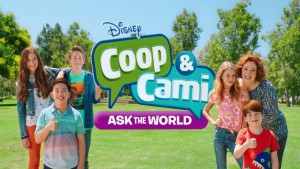 You’re a character actress. What exactly does that mean?
You’re a character actress. What exactly does that mean?
It’s funny, I kind of have no idea. I just know that a few very pretty people are romantic leads and everyone else is a character actor.
Depending on who you ask, character actors are the ones who play characters rather than playing themselves, are able to transform themselves into characters who are very different than they are, who populate the world of the story with interesting people who act upon the lead character(s), or who have a broad set of skills and wide range of acting abilities.
I guess I’ve never bothered to think about it very much because I’ve always known that’s the category I fall into, so no matter how someone chooses to define it, that’s what I am.
You’re from the East Coast. At what point did you move to the West Coast and what caused you to make that decision?
I grew up in New Jersey and for college, studied acting at Carnegie Mellon University in Pittsburgh. As graduation approached, I knew I didn’t want to move to New York. It was so close to home, I wasn’t excited by what was happening in theater at that time, and didn’t want to get stuck in small chorus and ensemble roles, which is what I saw in my future in New York. I thought maybe I’d go to Chicago, I really didn’t know.
Carnegie is one of the schools that always did a showcase for agents, managers, casting, etc. in New York, and my class decided we wanted to do the same thing in LA. It was through that process that I decided to move west. It was right around the time of The Sopranos when television was entering the golden age it’s in now. The idea of trying something new — and frankly of moving someplace sunny and warm and all new to me — was exciting. I figured if it didn’t work I could always go back home. But it’s been over 20 years at this point, so I think it was the right move.
You were in an episode of Nip/Tuck where your character, Abby Mays, was degraded by Christian Troy (played by Julian McMahon) and asked to wear a paper bag over your head during sex. Even more disturbing was the fact that Abby accepted this treatment.
a) Were there any talks in advance with the cast and/or crew about this scene and how it would affect you or women in general?
As I understand it, there were conversations among the writing staff and production team about the character and making sure that they walked the fine line between Christian demeaning Abby, which is key to the story, and the show demeaning her, which some people were concerned about. A lot of people expressed relief to me that they’d cast an average-sized, funny, relatively confident actor as Abby so that she wouldn’t be a sad-sack character and the story of her relationship with Christian would be less about her physical appearance and much more about what happens when two people with so much psychological damage and self-loathing cross paths.
b) This role was pivotal for your career in that it really put you on the map with the television industry, casting, producers, directors, etc. What doors did this part open for you?
When I booked that part, the wonderful Nip/Tuck casting director Liz Dean told me, “This is going to change your career.” And she was right. I did start going out for more substantial roles after playing Abby. But the biggest change was really in my experience of auditions. I’d gotten very comfortable being a dark horse, someone people didn’t know well or necessarily expect a lot from — and then, when I did work that grabbed their attention, it was like, “Oh! This Rebecca person knows what she’s doing!”
After Nip/Tuck, I would walk into auditions and casting would introduce me to the producers and directors by saying, “This is Rebecca. Did you hear about her on Nip/Tuck? She’s AMAZING.” And I’d think, “Ummm, I am not about to be amazing because there’s nothing amazing about this scene.” Suddenly there were all these expectations to live up to, it was a very different kind of pressure. It took me a few months to adjust to it, like breaking in a fancy new pair of shoes. But once I found my footing again, I was able to work with people on a new level because it wasn’t about proving myself anymore. It became about just doing the best work we could do together.
Besides being a member of SAG-AFTRA, you’re also a member of AEA. Tell us how you got your Equity card.
I moved to LA right after graduation and started doing background work to get into SAG. Once I booked a couple of on-camera jobs, I bought into Equity because I was starting to audition for Equity theater. Of course, as soon as I joined Equity, I lost a great LORT job because they decided to go non-union with the role I was up for. Isn’t that always the way?
You seem to do more television than film. Do you actually have a preference and tend to accept more TV or it just worked out that way?
I’d love to say I steered my career to where it is today — but as actors understand, so much of it is chance. I happened to move to LA just as television was beginning its renaissance. My background is in theater, but it’s hard to make a steady living on stage in LA, so I worked full-time office jobs to keep myself afloat while building up giest roles on television and did TONS of small LA theater to keep my creative batteries charged and my skills sharp. In terms of volume, especially within the last 10 years, there’s just SO much more work in television than in film and theater, and as we all know, work tends to beget more of the same kind of work. So I’ve ended up mostly having done television, which I love, also some film when the opportunity arises and always keeping one foot in theater.
You’ve had roles on TV where it was for one episode, and you’ve had roles for multiple episodes. For the jobs with one episode, is it difficult to create a character in such a short amount of time? How do you do it?
It takes a lot of trust. You have to remind yourself that they cast you because of what you brought into the room — the choices you made and parts of yourself you brought forward to fill out the character. When you’re in one episode, you’re probably not being called upon to deliver a transformative, chameleon-like performance. The story probably isn’t about you. You’re there to serve the story, add some color and layers to the world, and to impact the lead characters’ journeys in interesting ways. So for roles like that, I tend to keep it simple and trust that between what’s in the script and what I bring to the table, the character will emerge.
Are you a “backstory geek”?
I’m not a crazy backstory person. I’m a big believer in always returning to the text. I do a good amount of text work in my prep, so if it’s a good script and the answer isn’t in the text, I figure I probably don’t need it. If I’m prepping and I find myself with an important question the text doesn’t answer, I’ll ask the writer (if that’s an option) or make a choice that feels right and does what I need it to do. But I only do that when it’s absolutely necessary. I’m already a pretty cerebral actor, so I’m always working to get out of my head — and thinking too much about backstory puts me right back there.
Plus, especially in television, our characters are revealed to us over time. On Shameless, I found out several episodes in that my character, Melinda, was a mom. On Better Things, I didn’t find out Tressa was a lesbian until season two. If I’d made a bunch of arbitrary decisions early in the process, those revelations could have been really jarring. But because I only worry about what I need to tell the story in front of me, I’m able to learn about my characters as I play them and it’s relatively easy to incorporate new information.
Rebecca Metz. Exclusive Photo to NYCastings.
The industry has changed a lot since you first started. Tell us some of the changes you’ve noticed.
Well, when I was starting out, I had black-and-white headshots on film (with a big “REDHEAD” stamp so casting wouldn’t be shocked,) took them to a retoucher who painted on them with a brush and then paid through the nose for hundreds of film reproductions. Those days are thankfully long gone. Now it’s color photos all edited and submitted digitally. Reels are so much easier, auditions and sides and scripts come through email, and I can keep up with casting on social media rather than sending hundreds of postcards like I used to do.
Of course it’s also so much easier for new actors to create and distribute their own content. I feel like I’m one of the last generations to be trained thinking we could just be actors — now everyone produces their own web series! On the one hand, that means the market is flooded with people who have a million followers but no training or acting chops. But on the other, it means you don’t have to wait for someone to give you a chance to show what you can do. That’s where the same old wisdom comes into play — the cream eventually rises to the top.
You established above that you’re a graduate of the Carnegie Mellon School of Drama. Do you still take classes?
I’ve taken lots of skill-specific classes — improv, voiceover, cold reading, vocal coaching, etc. I like to do things that are scary and new every so often to throw myself off-balance. But I haven’t taken a straight-up acting class since graduating from CMU. That was such intensive training, I felt like I couldn’t even begin to process what I’d learned there until I was out and working in the real world. And that’s still basically how I feel. They gave me a massive arsenal of technique and history and reference material — my work now is to keep going back to that foundation and learn what happens when I apply all of those things to the work in front of me as I grow and change as a performer and a human being.
When you’re not working, what do you like to do?
My husband and I are big wine enthusiasts and foodies. I love cooking and baking, especially with all the fresh ingredients we get in southern California. We road trip to wine regions all over the state (and sometimes beyond.) There are so many parallels between acting and food, I think. It’s all about being creative within a given structure. You have to pay attention and react to everything around you or it all falls apart. You’re never done learning, you can always be better. And you can only get better by trying and failing again and again.
Are you ever afraid you won’t be able to pay the bills?
Oh, I don’t think that will ever go away. After spending so many years trying to reach the point at which I could support myself just from acting, I don’t take it for granted for a moment. But I’ve learned to see the uncertainty as something exciting, and the unknown that looms at the end of every job as a sea of possibility. I don’t know what will come next, but I’ve made it this far, so I trust there’s something in the distance that I just can’t see yet. I’m not a religious person, but I guess that’s my version of faith.
What advice do you have for actors who are just starting out?
Take your training seriously. Don’t rush through it. It’s so important to take the time to fail again and again and again when you’re starting out because that’s how you build the muscles you need to get back up again — and you’ll be doing that for the rest of your career. That’s how you learn who you are as an actor and what you do that’s different from everyone else. Training is what allows you to walk into a room full of strangers and know you have something worth showing them. It might not book you that job, but it will slowly but surely help you build a name for yourself.
Follow Rebecca Metz on social media at @therebeccametz .

